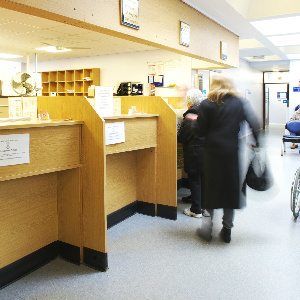GP practices are facing ‘extortionate’ increases in premises costs that could force layoffs and salary cuts, despite ongoing negotiations to bring them down, Pulse has learned.
Ten practices in the Bristol, North Somerset and South Gloucestershire area have been under pressure to sign new leases with increased service charges after NHS Property Services (NHSPS) took over the management of their premises from PCTs in 2013, according to a Bristol-based practice manager.
One practice manager told Pulse their practice previously paid an annual fee of £14,000, however the revised service charge increased to £48,870.
NHS England had previously assisted practices with payments for two years, but this period has now ended and a resolution has not been reached.
Richard Taylor, director of property consultant Osmond Tricks who is acting on behalf of the practices in this matter, said GPs fear these costs could mean practices pay ‘less salary and might have to lose people’.
This is the latest in a long-running dispute over premises charges, which saw hikes as high as 400% for some practices in 2016, which many practices refused to agree to. In 2017, NHSPS claimed it had accrued more than £90m of outstanding premises fees.
The practice manager said they had initially paid £14,000 a year up until March 2016, but was quoted a revised figure of £48,870 for 2016/17. They added: ‘When we explored the service charge schedules to understand why the costs had tripled, we could not understand some of the high numbers quoted.’
They said NHS England had promised to pay a contribution to legal fees, stamp duty and land tax if the practice signed the lease within a fixed period. However, the deadline has now passed and the Bristol manager said there has been no confirmation from NHS England if they will support the practice.
The manager added: ‘We want to ensure that other practices are having these same conversations with NHSPS and are not being forced into signing higher service charge agreements within their leases – we have managed to reduce ours.’
The manager said the figure had since gone down to £30,000 following negotiations with NHSPS, however they said the fee was still a 100% increase on the previous charge.
Mr Taylor, who is working with Avon LMC to resolve the terms and service charges, said this issue had been going on for years.
He said: ‘The argument and the issues that are currently raging revolve around the management of the buildings because the buildings are multi-let to not only the doctors but other public sector bodies in the building such as NHS trusts, not-for-profit provider arms.
Mr Taylor said these practices are worried about how they will pay the bills if they sign these leases.
He said: ‘Doctors are saying to me “I’m not prepared to sign a suicide note. If I’m signing this lease I could be putting my practice in jeopardy.”
‘I’m trying to get them to a position where they sign a lease which has got a capped service charge at a level they know they can afford and only goes up by inflation over the term of the lease so everyone knows what they are liable for and what their cost base is.
‘NHSPS is willing to accept the capped service charge but we haven’t got to the cap yet. That’s work in progress.’
A spokesperson for NHSPS said: ‘In 2015/16, the Department for Health and Social Care and NHS England agreed NHS Property Services would charge customers the actual running costs associated with their buildings. In some cases this led to a change in the level of funding GPs could claim for, from their commissioner.
‘NHSPS’s remit is to support the NHS estate so that GPs can deliver excellent patient care in modern and well-maintained facilities. To do this the company must recover direct costs for providing essential services like cleaning and repairs. We always work with our tenants and local partners to find solutions to payment issues and continue to offer support to practices.’
The BMA had previously urged practices not to sign leases unless they fully understand the terms and liabilities.
In 2016, Pulse reported that practices were refusing sign new premises leases which would see their fees hiked by 400%.
Local leaders also warned that practices were being ‘financially crucified’ by a huge increase in service fees.
This article was changed. It originally said NHSPS took over the management of premises from PropCo. This was incorrect.

















